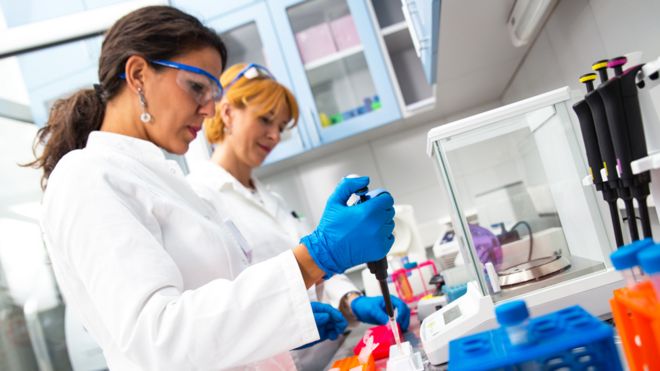Medicine has always been personal to some extent – a doctor looks for the best way to help the patient sitting in front of them.

But with advances in technology, it is becoming possible to use the most unique of characteristics – our genomes – to tailor treatments for individuals.
Genomes are made up of a complete set of our DNA, including all of our genes, and are the instruction manual on how to build and maintain the 37 trillion cells in our bodies.
Any two people share more than 99% of their DNA. It’s the remaining less than 1% that makes us unique, and can affect the severity of a disease and effectiveness of treatments.
Looking at these small differences can also help us understand the best way to treat a patient for a range of diseases – from cancer and heart disease to depression.
Testing cancers
Cancer is the most advanced area of medicine in terms of developing personalised treatments.
In the UK, differences in the DNA sequence are being used by the NHS to help doctors prevent and predict cancer.
For example, women with an increased risk of developing breast or ovarian cancer have been identified by screening for changes to the BRCA1 or BRCA2 genes.
Mutations in these genes increase a woman’s risk of breast cancer by four-to-eightfold and can explain why some families see many relatives with the disease. A BRCA1 mutation gives women a lifetime risk of ovarian cancer of 40-50%.
Screening has helped women make informed choices about treatment and prevention – for example, whether to have a mastectomy.
To extend this approach to other cancers, researchers are switching off all of the genes in hundreds of tumours grown in the laboratory. In doing so, scientists are looking for cancer’s weaknesses – to try to produce a detailed rule book for precision treatment.